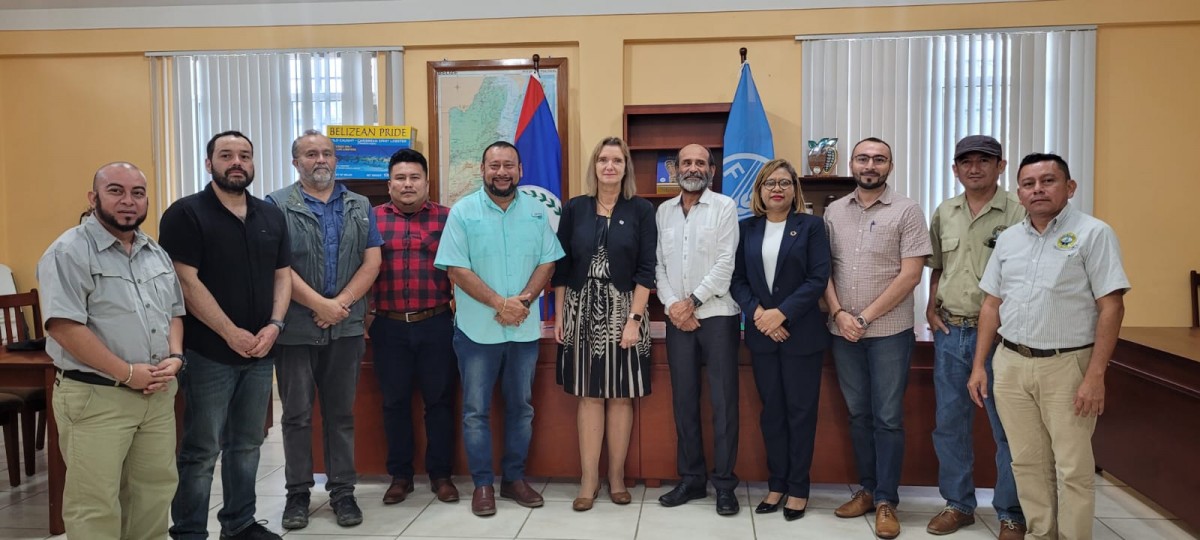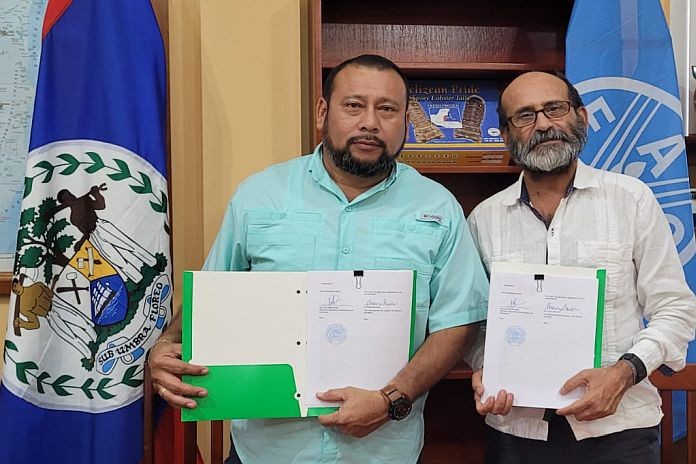By Government Press Office | BELIZE
BELMOPAN, Belize – The ministry of agriculture, food sand enterprise and the Food and Agriculture Organization (FAO) signed the Country Programming Framework (CPF) 2022-2026 on November 24, 2022.
This strategic document presents the FAO’s key areas of technical cooperation and medium-term country-level programming in support of the government of Belize. The document was developed within the framework of the United Nations programming processes, including the UN-Common Country analysis and the United Nations Multi-Country sustainable development cooperation framework for the Caribbean and the Sustainable Development Goals of the 2030 Agenda for sustainable development.
The CPF 2022-2026 also reflects the Plan Belize agenda, the COVID-19 Economic Recovery Strategy and other national and strategic documents related to agriculture, food and nutritional security, and rural development. The CPF sets out the lines of cooperation that FAO will provide over the next four years and aims at advancing Belize’s national development priorities within three strategic areas of work.

These strategic areas include:
- inclusive food systems for eradication of malnutrition and food insecurity towards providing healthy diets for all;
- sustainable and inclusive agri-food systems and agricultural value chains to achieve prosperous and inclusive rural societies; and
- resilience to climate and economic shocks through sustainable natural resources management.
The strategic areas of work, as identified in CPF 2022-2026, will benefit from best practices developed by FAO at the national and regional levels as well as international technical standards promoted by FAO in its member countries. FAO will maximize its comparative advantage, leverage synergies, and increase effectiveness in collaboration with other United Nations agencies.
The intended changes will be realized by strengthening the capacity of government stakeholders, such as extension officers supporting farmers in supplying local markets and social protection programs such as the school feeding program. The focus will be placed on developing and implementing policy frameworks and accountability mechanisms to enable access by all to safe and nutritious foods, end hunger and all forms of malnutrition as well as improve institutional capacities to enhance nutrition awareness to reduce the incidence of non-communicable diseases.





